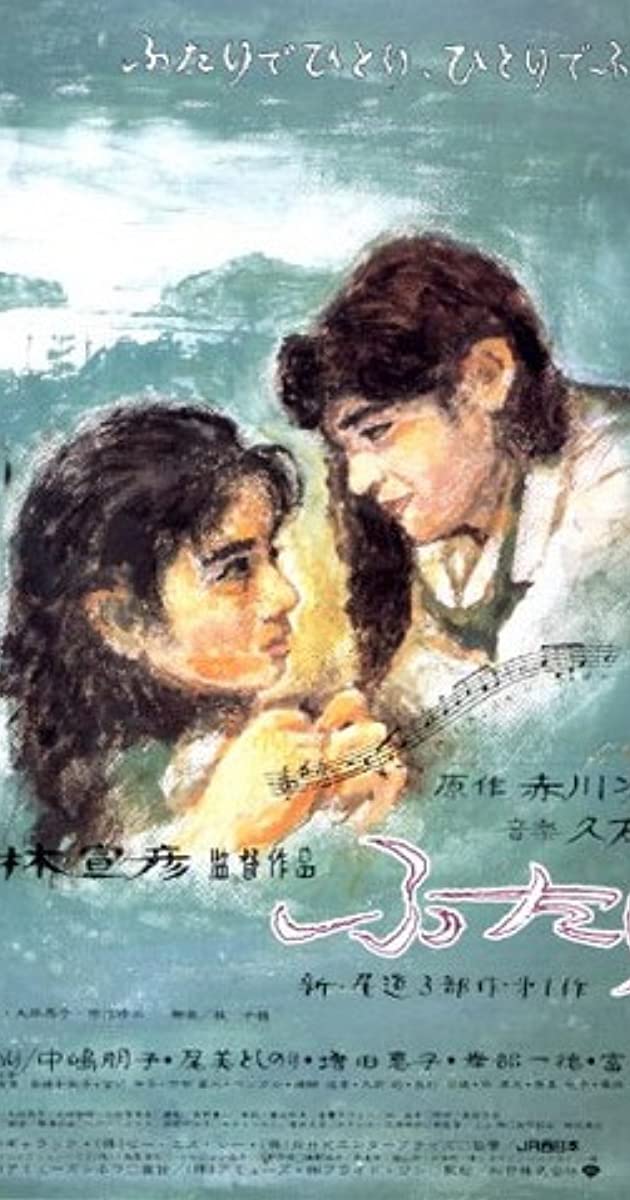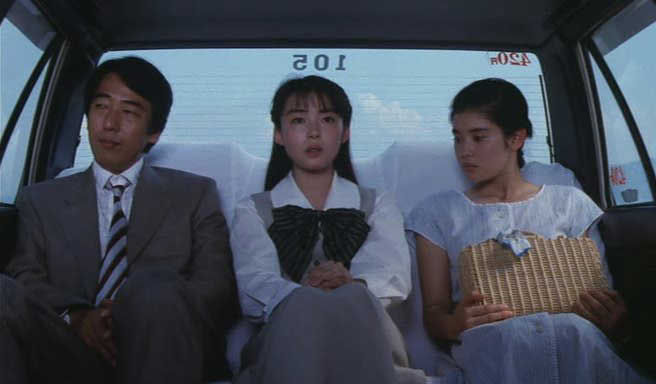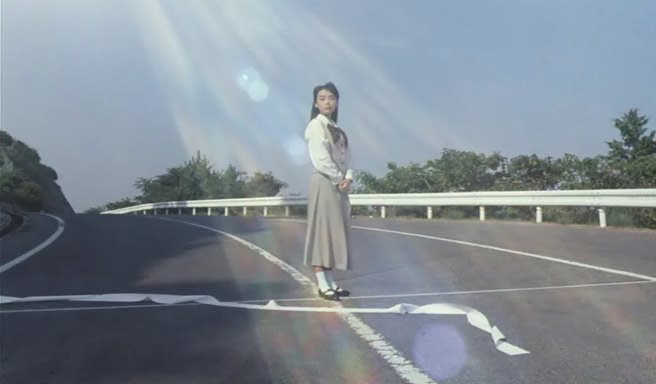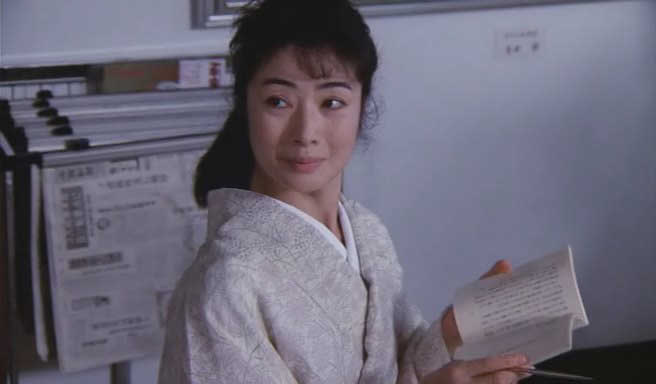Aka - Futari (Pair)
There were moments in this 150 minute fantasy melodrama that I wondered
if it would ever end. It took me two days to finish it up. It is slow going,
episodic, often leaving a scene before it feels complete, as low key as a
lazy dream and verges on being a Japanese TV soap opera - but almost unnoticed
is that it keeps gaining emotional weight and by the end you feel exhausted.
And glad you made it. Glad you stuck with it. It has no narrative drive through
as the story shifts around and hugs sub-plots only to let them go - and hits
these pure emotional moments in a way that only the Japanese are not ashamed
to do. Based on a story from Jirō Akagawa, a prolific writer and also
credited for Sailor Suit and Machine Gun and a series of mysteries called
the Calico Cat Holmes mysteries.
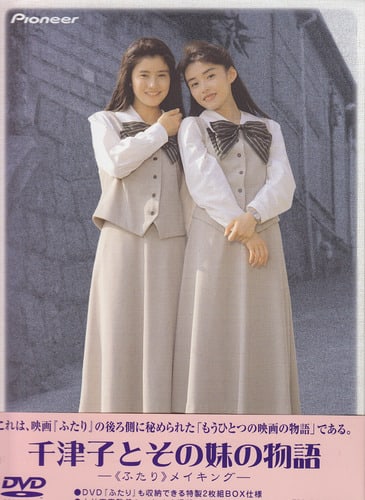
It is directed by Nobuhiko Ôbayashi, once again delving into the world
of teenage girls. He does this a lot though whether because these films always
did well at the box office or he just liked working with them I can't say.
Nobuhiko who died earlier this year (2020) was active from his feature debut
House in 1977 till last year in 2019. In his varied films (about 50 of them)
he is mainly known to the West for his fantasy works beginning with House,
the story of girls in a furniture eating house, through the 80's and 90's
when he directed films like The Aimed School, The Little Girl Who Conquered
Time, The Drifting Classroom, Samurai Kids. The idea for House apparently
came from his daughter - the studio asked him if he had anything like Jaws
- so he consulted his daughter who said what about killer furniture instead
of a shark! He was born near Hiroshima in 1938 and later in his film career
he directed an anti-war trilogy - Casting Blossoms to the Sky” (2012), Seven
Weeks (2014) and Hanagatami (2017). Looking on Amazon, it doesn't appear that
many of his films are available in English.
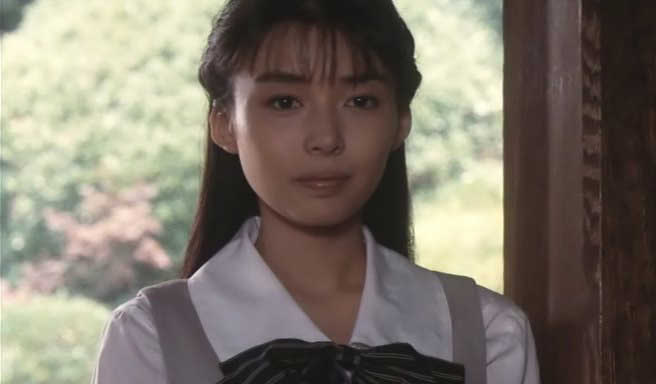
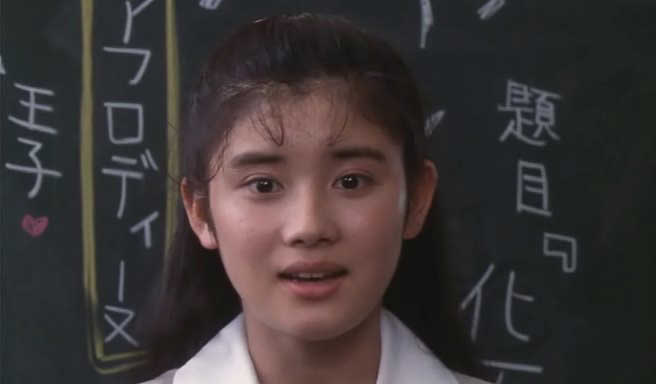
Though this has the supernatural and teenage girls in common with some of
his earlier films, it is an entirely different animal. No phantasmagoric elements
or cheesy fun special effects - it is a very somber, thoughtful, near morose
coming of age story in a small Japanese town with a labyrinth of small narrow
streets and houses built on the hillside overlooking the bay. It was filmed
near Hiroshima. It focuses on Mika (Hikari Ishida - still a working actress)
who is first seen when she is three years old - a sulky little girl called
by nearly everyone outside of her family as Chizuko's Little Sister and it
continues that way when she gets older. The film jumps about 13 years into
the future - and something is off kilter though it takes us a while to realize
that Chizuko has died in a terrible accident. Mika is with her father
(Ittoku Kishibe, an actor you come across all the time) and her mother (Fuji
Junko - legendary from her films in the 1960s) - but the father has grown
distant since the death and the mother is brittle and ready to break into
little pieces. Neither are capable of giving Mika any support.
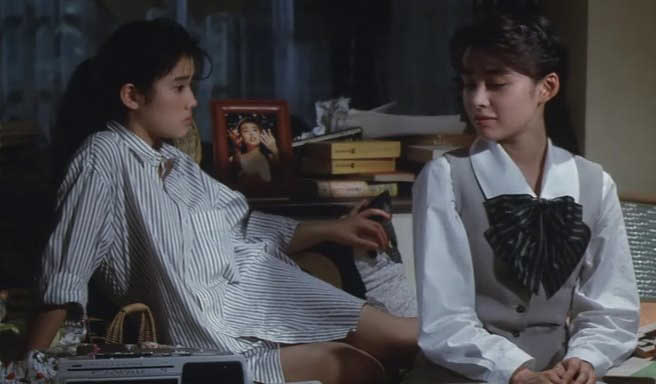
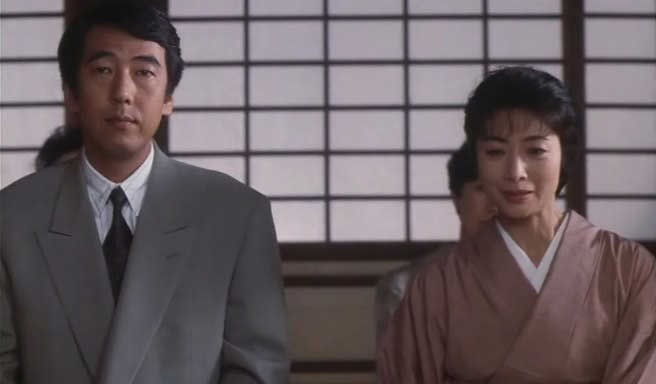
But she has Chizuko (Tomoko Nakajima - also still working). When Chizuko
was dying she said a few things to her little sister - you are better than
you think, take care of our parents and I will always look over you. And one
night while walking home Mika is attacked by a man who attempts to
rape her and Chizuko appears and points to a rock that Mika uses to bash the
man over the head. And Chizuko stays with her - giving her advice, cheering
her on - through various adversities. Because not a lot goes really right
in Mika's life - the parents grow further apart, a possible romance peters
out, she has to drop out of the school play - but her older sister is always
there. Whether Chizuko is in her head or real is hard to say. But through
all this she begins to grow up - Hikari Ishida is terrific in maturing before
our eyes - take on responsibilities - see the world for what it is and begins
to write. About Chizuko.
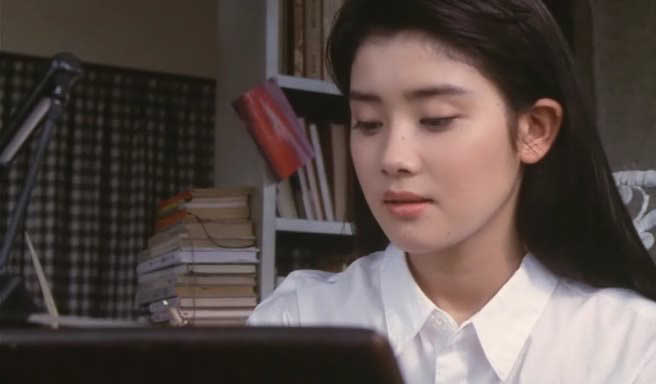
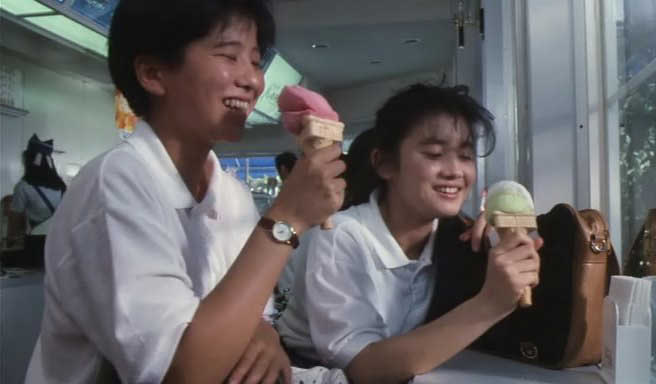
Its portrayal of small town Japan is lovely and lyrical - her friendship
with her gal pal Mako is endearing and enduring, the simple act of eating
watermelon, the school scenes, riding bikes, sitting looking over the water
fills out the film - all to the music from Joe Hisaishi. The supernatural
aspect in the end is just a small though important part of the film. It works
on different levels. All emotional.
